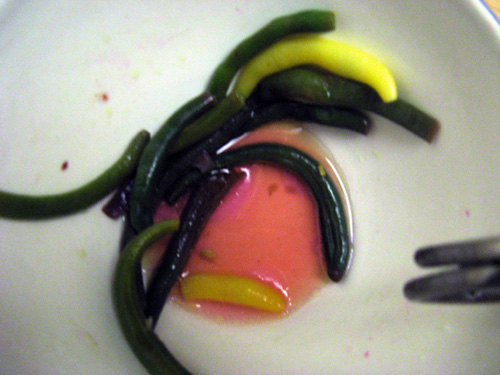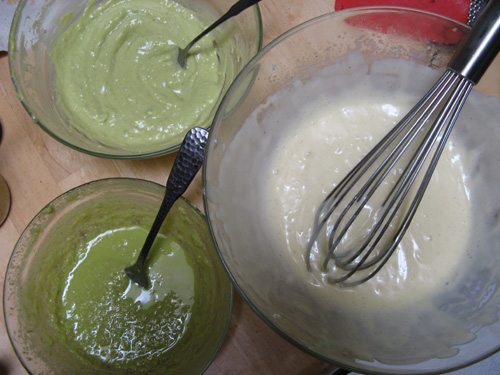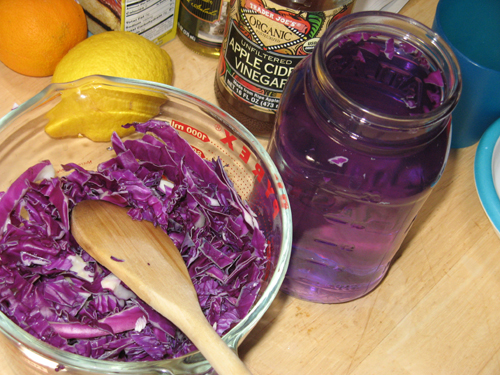Counter Culture Coffee generously invited us to join us for their regular Friday morning cupping at their Durham, North Carolina headquarters.
Here are the dimensions on which the coffees are evaluated in the cupping:
Category Archives: Science in everyday life
Won’t someone think of the children?
Around these parts, folks sometimes get het up about issues like scientific literacy (or lack thereof) in the general public, public interest (or lack thereof) in matters scientific, and whether scientists have the chops to communicate information clearly to non-scientists.
It’s worth remembering that a large group of non-scientists are kids, and that they are actively sucking information from wherever they can get it — parents, teachers, television, internet, even books.
Ahh, books. We like books. Books can get kids interested and excited about a topic even in the absence of an adult expert or enthusiast in the vicinity.
So it’s a good thing if the books are actually providing information rather than misinformation. And this is why Miriam Axel-Lute at Strollerderby would like to have a word with children’s book authors. Specifically, she’d like them to cool it with their persistent mistakes about the natural world:
Why does Thanksgiving dinner *really* make you sleepy?
For years, you’ve heard the tremendous fatigue experienced after an American Thanksgiving dinner laid at the feet of the turkey — or more precisely, at the tryptophan in that turkey. Trytophan, apparently, is the go-to amino acid for those who want to get sleepy.
But according to an article in the Los Angeles Times, the real story may be more complicated than that:
TV science party tonght!
Over at Cosmic Variance, Sean Carroll gets us an imaginary audience with Les Moonves (President and CEO of CBS) to pitch a new TV show about science:
The mystery of the beans.
Earlier this week, I cooked up about a pound of the bush beans from our garden. There was a mix of yellow, green, and purple beans (although, as expected, steaming transformed the purple beans to a dark green color). I dressed the cooked beans as usual and served them with dinner.
As I was clearing the table after the meal, I saw this:

After school experiment: avocado mayonnaise.
Given that today is Mole Day, it seemed only fair to follow up on our earlier experimentation with avocados. You may recall that, in discussing our efforts to dissolve avocados, we said:
One further experiment we’ve decided to try at some future point is to investigate whether we can make mayonnaise substituting mashed avocado for some or all of the oil.
That future point? Now a past point.

Before I report the results from our kitchen, let’s talk a little about mayonnaise.
After school experiment: make your own indicator.
Yesterday, we had an urge to do some experimentation and I had a red cabbage that had overstayed its welcome in the refrigerator crisper drawer.
So of course, we made cabbage-water indicator.

Citizen scientists help track bee populations.
Stories about the honeybee crisis and colony collapse disorder (CCD) keep turning up in the news (at least here in California, where we grow so many big cash crops like almonds that rely on honeybees to pollinate them). But it turns out that getting to the bottom of CCD is made more difficult by the the gaps in biologists’ knowledge about the wild bee populations. (A lot of the bees pollinating food crops are commercially kept rather than wild.)
But, as reported in an article in the September-October 2008 issue of American Scientist [1], the Great Sunflower Project is enlisting the efforts of citizen scientists to fill in some of those gaps.
This food doesn’t taste right … or is it me?
As I was looking for a good sangria recipe some weeks ago, I came upon this article in Gourmet about how our understanding of the scientific basis for “flavor” as changed, not to mention what sorts of implications this might have for those who prepare — and sell — food.
One of the interesting bits is how different the science on taste is from what you probably think it is:
